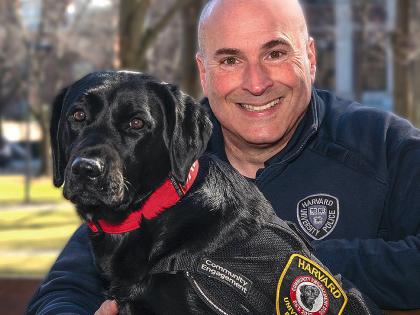Fractal Physiology
Wearable technologies that track physical activity are ubiquitous. But using them to generate medically useful information, such as predicting an elderly person’s risk of falling, is not straightforward: daily changes in schedules and weather alter activity. Associate professor of medicine Kun Hu, instructor in medicine Peng Li, and their colleagues, writing in Science, overcome this limitation using fractals: patterns that repeat themselves at different scales. They followed 1,275 patients, 56 to 100 years old, for as long as 13 years, and found that such patterns (with similar temporal, structural, and statistical properties) are “stable within individuals, and sensitive to pathological conditions” despite variations in average levels of physical activity. Specifically, they found that increased random fluctuations in activity, at timescales from about a minute to more than two hours, were associated with a higher risk of frailty, disability, and death for study participants, and might help spot people who could benefit from earlier intervention. The team previously showed that fractal fluctuations in activity could help predict a likely risk of Alzheimer’s years in advance.
Powering Coastal China
Electricity derived from land-based wind power instead of fossil fuels is often cheaper. Now, offshore wind farms are becoming cost-effective sources, too. In a recent Science Advances paper, researchers with the Harvard-China Project on Energy, Economy, and Environment note that much of China’s wind-power capacity is 1,000 miles from the coastal provinces that use 80 percent of the nation’s electricity—while meteorological data from 1980 to 2018 indicate that its offshore wind potential exceeds those provinces’ current demand more than fivefold. Senior author Michael McElroy, Butler professor of environmental studies, says much of that power can be developed “at costs competitive with existing coal-fired power plants.”








